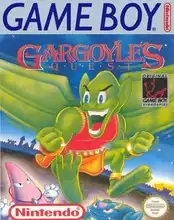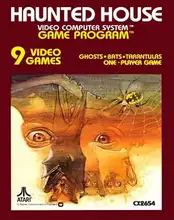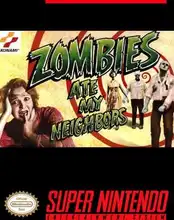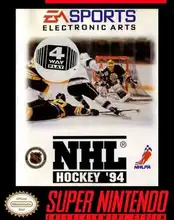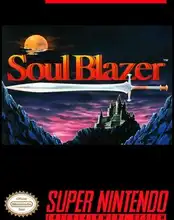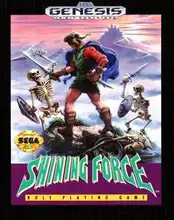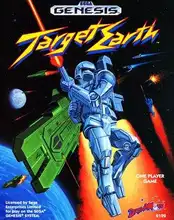Remember the distinct pixelated graphics, the catchy chiptune soundtracks, and the sheer challenge of games from decades past? There's a powerful pull to retro games, a charm that modern blockbusters, for all their graphical prowess, sometimes can't replicate. Whether you grew up mashing buttons on an NES or discovering PC classics in the DOS era, or you're a younger gamer curious about gaming's roots, the world of classic titles offers a treasure trove of experiences.
But why do these old school games continue to resonate so strongly? And more importantly, how can you dive back into (or discover for the first time) the magic of retro games in the modern era?
Why Retro Games Still Rock
It's more than just nostalgia, though that's certainly a big part of it. Retro games offer unique appeals:
- Pure Gameplay: Many classic titles prioritized tight mechanics and innovative level design over complex narratives or graphics. The focus was often on mastering a core loop.
- Distinctive Art & Sound: From iconic pixel art and sprite work to memorable 8-bit and 16-bit soundtracks, retro games have a unique aesthetic that's instantly recognizable.
- Challenging Difficulty: Before hand-holding tutorials and regenerating health were standard, many games demanded precision, patience, and pattern recognition. Beating a tough boss or level felt like a real accomplishment.
- Historical Significance: Playing these games is like visiting a museum of digital entertainment. You get to see the origins of genres and franchises that are still popular today.
Where to Find and Play Retro Games Today
You don't need to dust off an old console (unless you want to!). The digital age has made finding and playing retro games more accessible than ever.
- Digital Distribution Platforms: Services like GOG.com (Good Old Games) specialize in making classic PC titles compatible with modern operating systems. They offer DRM-free downloads of gems from the DOS and early Windows eras.
- Emulation: Software emulators allow you to run games designed for older consoles (like SNES, N64, PlayStation, Genesis, MAME arcade games) or computers (like DOS using DOSBox) on your PC or mobile device. This requires obtaining game ROMs or ISOs, which can be legally complex depending on your ownership of the original game.
- Online Archives: Websites like Archive.org host vast collections of playable classic games, often running directly in your browser using emulation technology. It's a fantastic resource for experiencing historical software.
- Official Re-releases & Collections: Many publishers release updated or bundled versions of their classic libraries on modern consoles and PC storefronts (Steam, Nintendo eShop, PlayStation Store, Xbox Store).
- Mini Consoles: Nintendo, Sony, and others have released miniature versions of classic consoles pre-loaded with popular games, offering a simple plug-and-play retro experience.
- Original Hardware: For the purists, collecting and maintaining original consoles, cartridges, and discs is a rewarding hobby, though it requires more effort and space.
Dive into Some Iconic Retro Genres
The retro era gave birth to, or perfected, many genres we love today:
- Platformers: Think Super Mario Bros., Sonic the Hedgehog, Mega Man. Precision jumping and level navigation were key.
- RPGs: Early JRPGs like Final Fantasy and Dragon Quest, or Western RPGs like Ultima and Baldur's Gate, defined storytelling and character progression in gaming.
- Arcade Classics: From Pac-Man and Space Invaders to Street Fighter II and Mortal Kombat, the arcade scene pushed the boundaries of graphics and competitive play.
- Multiplayer Mayhem: Before online lobbies were common, local multiplayer on consoles or arcade cabinets provided unforgettable social gaming moments, whether it was competitive racing, fighting, or cooperative beat-em-ups. Finding games that supported multiple players, sometimes requiring adapters like a multitap, was a key part of the fun.
The Retro Community & Future
The passion for retro games is kept alive by a vibrant community of players, collectors, developers creating new "retro-style" games, and preservationists working to archive digital history. Events like retro gaming conventions bring enthusiasts together. The future looks bright for classic games, with ongoing efforts to improve emulation, release more official collections, and ensure these foundational pieces of gaming history aren't lost.
Whether you're revisiting old favorites or discovering classics for the first time, diving into retro games is a rewarding journey. It's a chance to appreciate simpler times, challenging gameplay, and the undeniable charm that defined an era.
FAQ
Q: Is it legal to download ROMs for retro games? A: The legality of downloading ROMs is complex and varies by region. Generally, downloading ROMs for games you do not own is considered illegal copyright infringement. Some argue it's permissible if you own the physical copy, but this is a debated area and not universally accepted legally. Using emulators themselves is legal, as is purchasing games through official digital storefronts like GOG or re-releases.
Q: What's the easiest way to start playing retro games? A: For PC games, GOG.com is very user-friendly as games are pre-configured. For console games, exploring official re-releases on modern platforms or trying browser-based archives like Archive.org are often the simplest entry points.
Q: Do I need a special controller for retro games? A: While you can often use modern controllers or keyboard controls, many players prefer using USB controllers designed to mimic classic gamepads for an authentic feel.
Q: Are new games still being made in a retro style? A: Absolutely! There's a thriving indie scene creating games with pixel art, chiptune music, and gameplay inspired by classic eras, often referred to as "retro-inspired" or "modern retro" titles.

